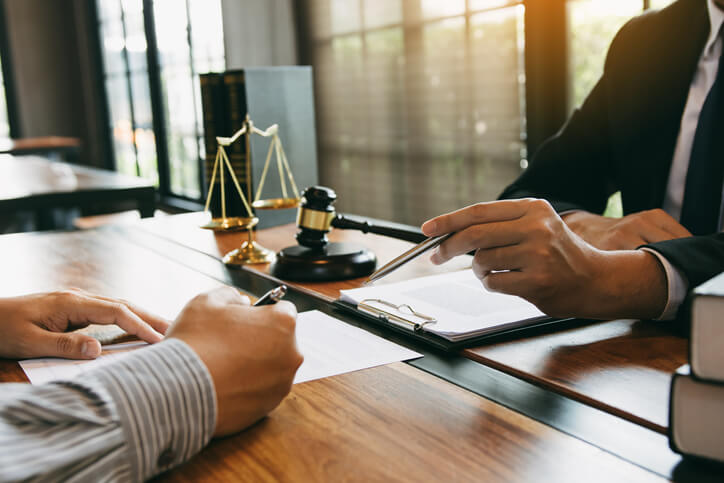Disputes over business, real estate, and personal matters often lead to lawsuits. Civil litigation involves going to court to seek a resolution of the issue and to obtain some form of legal remedy, such as monetary damages or equitable relief. Lawsuits are often time-consuming and stressful and can be disruptive to the litigants’ business and personal lives. Although the vast majority of civil cases settle out of court, a trial before a jury or judge can be inevitable for a host of reasons. Levy Goldenberg LLP, New York’s leading civil litigation practice, represents businesses and individuals in many varieties of lawsuits throughout the Metropolitan Area.
Reasons for filing suit
Plaintiffs generally commence civil actions to recover damages for losses or injuries sustained as a result of the wrongdoing of another. Civil damages are monetary awards granted by a judge or jury and can be compensatory or punitive in nature. The purpose of awarding civil damages is to restore the party that has suffered a loss or injury to the position that the party was in before the loss or injury occurred, or in other words, to make the plaintiff whole.
General damages involve payment for non-financial losses, such as pain and suffering. Compensatory damages, also known as actual damages, are intended to compensate a plaintiff for pecuniary (economic) losses and/or personal injuries. Examples of compensatory damages include:
- Lost profits
- Lost business opportunities
- Lost earnings
- Costs associated with repairing or replacing property damage
- Medical bills relating to personal injuries
- Legal fees
Punitive damages are assessed to punish a defendant for engaging in gross negligence or willful, reckless, or intentional misconduct. Punitive damages awards can be significantly high and are meant to deter such behavior.
Plaintiffs may also go to court to ask for equitable relief, such as an injunction or a declaratory judgment. Preliminary and permanent injunctions are special court orders that compel the opposing party to do something or to refrain from doing something. A defendant who fails to comply with an injunction may face civil or even criminal penalties. A declaratory judgment is often sought when there is uncertainty over the legal obligations or rights between the parties. A court will issue a declaratory judgment to define the legal relationship between the parties and establish the parties’ respective rights.
Types of Civil Litigation Cases
Civil courts handle a wide variety of lawsuits involving numerous legal issues. New York’s Commercial Division oversees complicated commercial cases, including breach of contract claims. A breach of contract results from a party’s failure to perform some contractual obligation without a legitimate excuse. Business-related litigation frequently deals with:
- Contract disputes
- Employment disputes
- Partnership disputes
- Shareholder disputes
- Unfair or deceptive business practices
- Breach of warranties
- Mechanics’ liens
- Business torts
- Tortious interference
- Fraud
Real estate litigation involves real estate contracts and landlord-tenant disputes. Personal injury litigation pertains to tort claims such as premises liability, product liability, and professional liability including medical and legal malpractice.
Stages of Civil Litigation
A lawsuit begins with the pleading stage, whereby the plaintiff files a summons and complaint with the court. A complaint contains factual allegations and causes of action, describing what the defendant did or failed to do that caused the harm to the plaintiff and the legal basis for holding the defendant responsible for that harm. Importantly, there are time limitations for filing suit. The statute of limitations varies depending on the type of case, the nature of the claims, and the parties being sued. Absent any applicable tolling, a lawsuit filed after the expiration of the statute of limitations will be dismissed as time-barred.
After commencing a civil suit, the plaintiff must then effectuate service by formally delivering a copy of the initiating legal papers on each defendant. Once served, the defendant has a specific amount of time to answer the complaint. An answer sets forth the defendant’s side of the dispute, responds to each allegation with an admission or denial, and states affirmative defenses for why the lawsuit should be dismissed. An answer may also contain counter-claims against the plaintiff. A defendant that fails to timely answer a complaint may face a default judgment.
After the initial pleading stage, the lawsuit will proceed to pre-trial discovery, which is usually the longest part of the case. Discovery involves the exchange of information, gathering evidence, and investigating the facts in preparation for trial. The parties furnish records that they intend to rely on at trial, respond to requests for document production, conduct depositions, and retain experts if necessary. The court has broad discretion to regulate discovery. If a discovery dispute arises, the litigants may seek judicial intervention by filing procedural motions. In some instances, one side may motion the court for summary judgment, which asks the court to decide a case and judgment as a matter of law on the ground that no genuine issues of fact exist such as would warrant a trial.
Following the close of discovery, if the court does not grant summary judgment, the case will proceed to a jury or non-jury trial. The party that prevails at trial will be entitled to enter a judgment against the losing party. A party that is dissatisfied with the outcome of the case may pursue an appeal, whereby the trial court’s decisions and orders are reviewed by an appellate court.
Contact Our Attorneys Today
Whether you are the plaintiff or defendant, if you are facing litigation, the most important thing you can do is consult with an experienced trial attorney as soon as possible. The trial attorneys at Levy Goldenberg LLP have an impressive track record of prosecuting and defending civil litigation matters throughout the New York Metropolitan area. Do not delay. Contact Levy Goldenberg LLP today to discuss your case.
